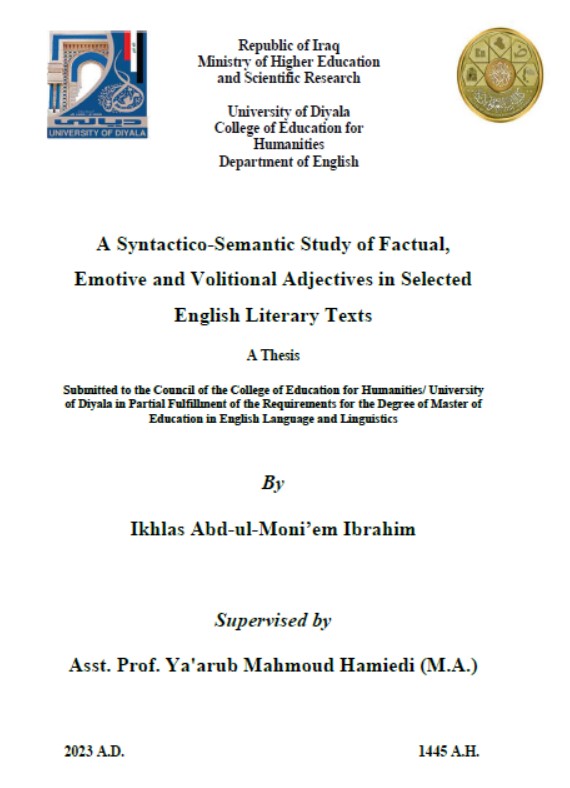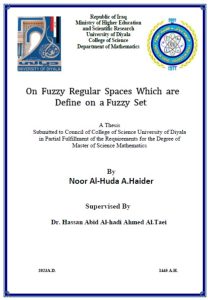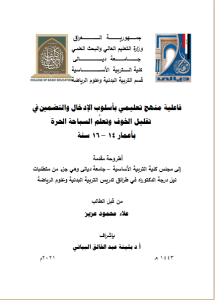Abstract
Adjectives constitute a major word class that plays a significant role in both written literary works in particular, and our everyday speech in general. In the creation of stories, novels, and poems, adjectives are crucial. The possibility of using adjectives to be used in various syntactic categories to describe the characters, events, and situations of the literary work allows them to have a descriptive power. Since adjectives make it easier to describe many shades of meaning, they can convey the message that the author intends to convey to the readership.
The core of this study aims to investigate the syntactic and semantic use of factual, emotive and volitional adjectives in selected literary texts. It is hypothesised via this study that the use of adjectives in literary texts is worthy of concern due to the effect of adjectives on the meaning of literary texts. The writers depend heavily on adjectives to describe the situation intended, that is to say, the writers use proper adjectives in a practical situation, and this, above all, contributes to the best understanding of the literary texts in general and the selected ones in particular. It is also hypothesised that factual adjectives are more used than emotive and volitional ones. Emotive and volitional adjectives may be applied to certain literary texts to carry complex semantic content.
To achieve its aims, answer its questions, and verify its hypotheses, the study employs both theoretical and practical techniques. The practical part consists of explains the selected samples from three short stories: “In Another Country” by Ernest Hemingway, “God Sees the Truth, But Waits” by Leo Tolstoy and “The Doll’s House” By Katherine Mansfield. It analyses them in the light of an adapted model based on Quirk et al. (1987). The model consists of two levels: Syntactic and Semantic.
The findings of analysing the selected samples demonstrate that the factual adjectives are the most frequently used ones. Such form of adjectives is concerned with presenting facts and truths. They are essential as they may enhance the truth value of the information and state facts. The second class of adjectives that appears at the second level is the emotive and then comes the third class which is the volitional one.
The findings also reveal that the writers mainly use the factual adjectives in the attributive position in order to express a permanent meaning. However, the emotive and volitional adjectives are mainly used in the predicative position. It is clear that the type of meaning expressed by an adjectival predicate has some bearing on the type of construction that allows complementation. The use of adjectives will help to arrange a good sentence which has a complete meaning especially in describing emotional or attitudinal states.
Based on its findings, the study concludes with a variety of conclusions, recommendations, and ideas for further research.





